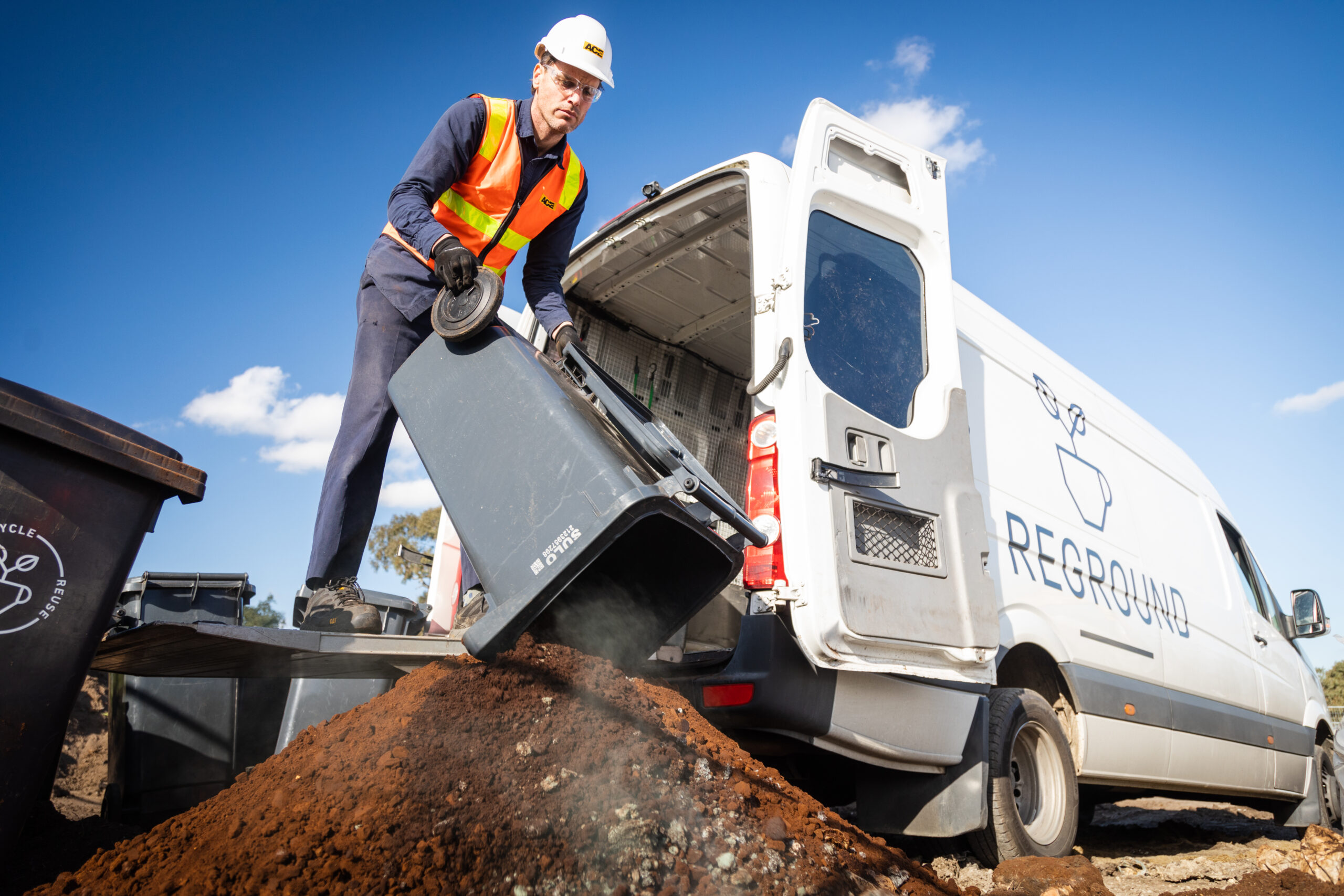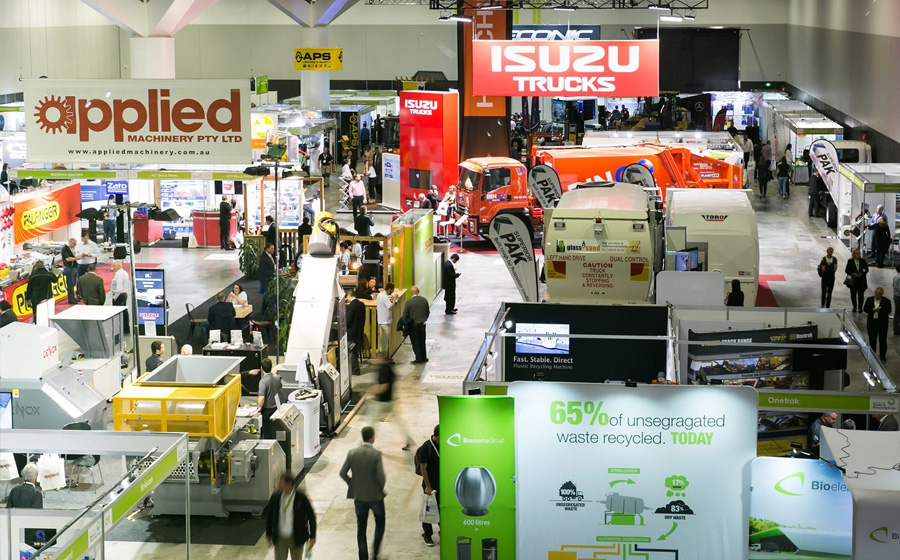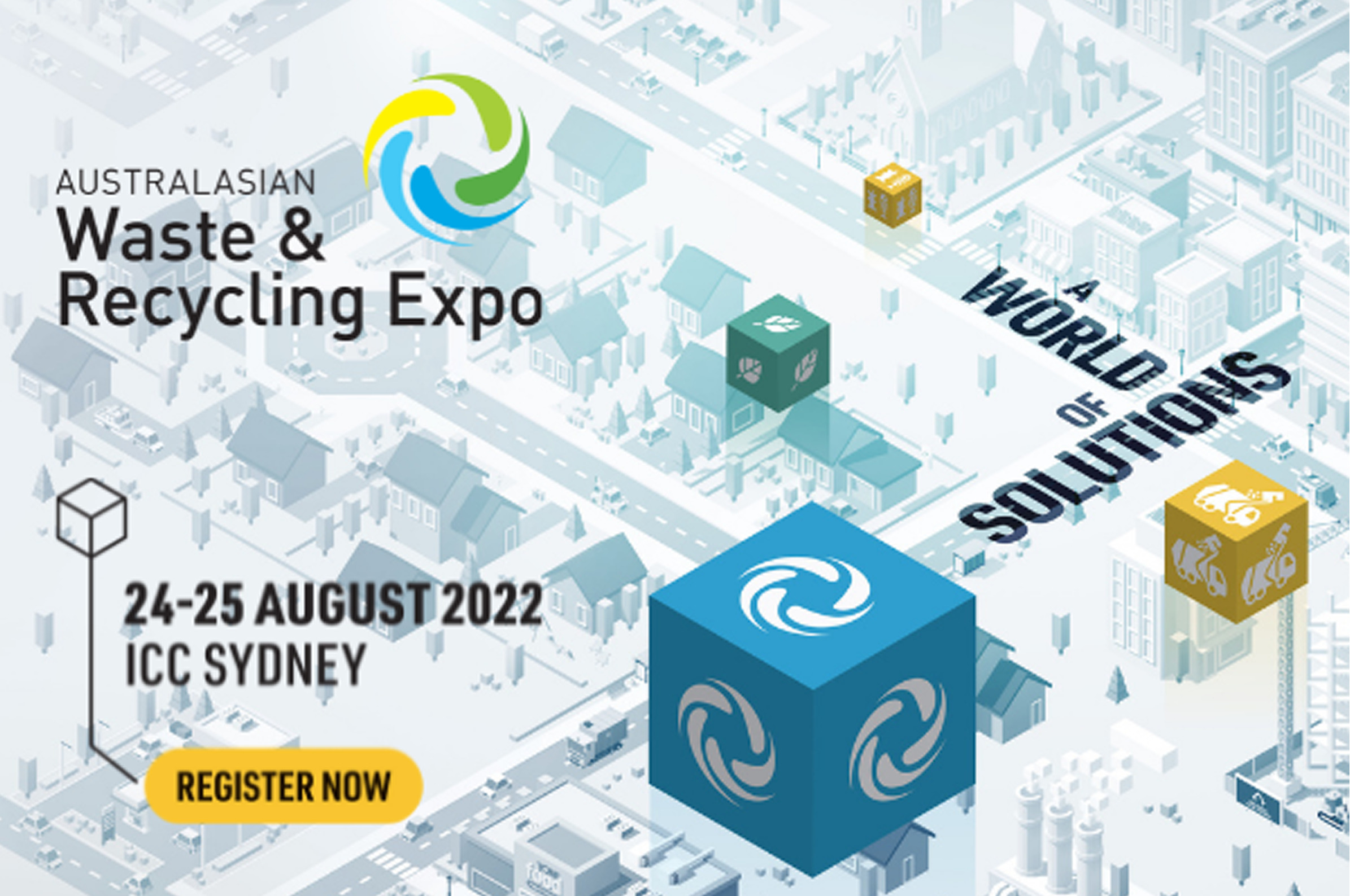
In a first for Victoria’s Big Build, used coffee grounds from cafes across Melbourne’s north are being used to conserve and improve topsoil quality thanks to the Childs Road Upgrade, powering our growing circular economy.
Minister for Energy, Environment and Climate Change Lily D’Ambrosio and Member for Thomastown Bronwyn Halfpenny welcomed delivery of nearly one and a half cubic metres of repurposed coffee ground compost to the project site in Mill Park, which will nurture the soil and create greener landscaping around upgraded sections of road and shared user paths.
Used coffee grounds equivalent to just over a quarter of a million lattes will be composted into the road project as the Childs Road Upgrade supports this new and innovative process to divert food waste from landfill – totalling almost 9.5 tonnes.
Reground operations manager Julian Bettiol said it was thanks to the support of the state government’s Recycling Victoria Communities Fund that they had able to expand services and secure meaningful, large-scale partnerships within the circular economy.
Bettiol said: “Coffee grounds are such a valuable resource; we are so pleased to be working with ACE and MRVP to demonstrate how our economy is moving towards true circularity.
“This partnership showcases big industry players teaming up with small local businesses to have a huge impact with sustainability first.”
60 cubic metres of coffee grinds will be mixed with topsoil during landscaping – boosting nutrient levels within soil to give freshly planted seeds and seedlings the best opportunity to thrive.
On their own, coffee grounds are too acidic to be used straight, but once mixed with other organic matter such as topsoil, they make a fantastic compost mix. They feed the soil with their high levels of carbon content, potassium and nitrogen.
As part of the road upgrade, more than 160 trees and 27,500 shrubs will be planted at the site as the project powers towards completion.
This is the first time used coffee grounds are being used on a major infrastructure project in Victoria, with the Childs Road Upgrade project exemplifying the principles of the Recycled First policy.
Major Roads Victoria planning and environment manager Mamode Osikoya said: “Working with services like Reground demonstrates the role local ingenuity is playing as the construction industry drives this state’s circular economy, paving the way for greener roads throughout Melbourne.”
Reground has sourced the grounds for the project from local cafes, including:
- Tyler’s Milk Bar, Reservoir
- Cafe Colores, Reservoir
- Drip Drop, Pascoe Vale
- Bagels Baby, Pascoe Vale
- Genovese, Coburg
- Poppy Café, Pascoe Vale
The Childs Road upgrade is kicking even more goals when it comes to sustainability, with the project team running machinery on biodiesel, using energy efficient temporary street lighting and installing low carbon concreate.
The project is on track to divert 90 per cent of construction and demolition waste from landfill.
The team’s sustainable practices mean the majority of construction waste is being taken to recycling facilities where it is processed to produce new products and materials.
The project has also used more than 6 tonnes of eMesh, an Australian-made product comprised of 100 per cent recycled plastic, which replaces traditional steel mesh and non-recycled plastic fibres to reduce plastic waste that ends up in landfill.
The material – manufactured by Fibrecon in Ballarat – is more sustainable, safer and cost-effective steel reinforcement, as it requires less effort handling and cutting, and has gone into building hundreds of metres of shared walking and cycling path that run along Childs Road.
Workers have also installed 470 metres of environmentally friendly recycled pipes which will be part of drainage around the new road being built either side of the Darebin Creek bridges – a perfect engineering solution because their rigidness makes them ideal for use in clay conditions on large infrastructure projects.
In total, around 150,000 two-litre plastic milk bottles will be used to make the 83 pipes.
Recycled First supports the government’s circular economy strategy, Recycling Victoria, and requires construction companies to demonstrate how they will optimise the use of recycled and reused materials on transport projects.
The implementation of Recycled First is being supported by ecologiQ, a State Government initiative helping to make the state a world leader in the sustainable use of recycled and reused materials.
The policy, being delivered by ecologiQ, requires contractors on road and rail projects to optimise the use of recycled and reused content.
ecologiQ director Tony Aloisio said: “ecologiQ is delivering the Recycled First Policy and supporting industry to integrate recycled and reused materials across Victoria’s $90 billion Big Build, making the use of such materials business-as-usual.”
MRPV and its construction partners like ACE, supported by ecologiQ, are committed to identifying ways to use more recycled materials across all major road upgrades, in line with the Victorian Government’s Recycled First Policy.
Recycled First is being implemented across future Victorian Big Build projects as well as Department of Transport projects from 2022.
The Childs Road Upgrade is due to be complete by the end of 2022. The project is jointly funded by the Australian and Victorian governments.











